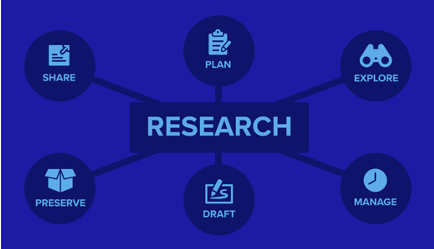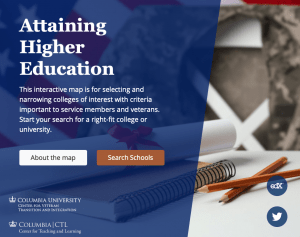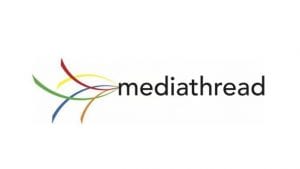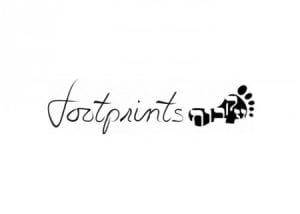Instructional Technology Projects
The CTL leverages its extensive experience with the purposeful use of media and technology to support teaching and learning projects and services. Working collaboratively with instructors, the CTL staff engages in a range of projects requiring software development, interface and experience design, media production, and project management, while maintaining a service-oriented disposition.
CTL learning designers, programmers, designers, media producers, and project managers collaborate with faculty to create reusable and scalable software and applications that serve Columbia students, and in some cases, the public at-large.
Interested in developing an educational innovation for your class? Faculty can apply for funding for project development through the Office of the Provost’s funding opportunities.
Recent Projects
From Books to Bytes: Navigating the Research Ecosystem
Barbara Rockenbach, Associate University Librarian for Research and Learning, Columbia University Libraries
 A set of online resources that define the research cycle, provide students with practical strategies, and guide students through the vast resources available to them at Columbia. The primary audience for this series is Columbia-affiliated students.
A set of online resources that define the research cycle, provide students with practical strategies, and guide students through the vast resources available to them at Columbia. The primary audience for this series is Columbia-affiliated students.
In addition, “From Books to Bytes” provides faculty and instructors The Instructor Toolkit, a guide on how instructors can: contact and collaborate with a librarian to best leverage the series in class, access the series on CourseWorks, and utilize instructional strategies and assessment techniques to disseminate the content.
The series is made up of six modules that each consist of an informational video and several handouts that contain strategies, exercises, and worksheets, all designed with pedagogy and accessibility in mind.
URL: https://library.columbia.edu/services/faculty/modules.html
Eureka!: Digital Improvisation Guidebook
Peter Susser, Director of Undergraduate Musicianship
Eureka is a guidebook for faculty in the use of improvisation toward those goals in the Ear Training classroom at Columbia. The guidebook is organized into three parts: 1) Improvisation Types: definitions of improvisation concepts that are used to structure improvisations. 2) Ear Training Level: a catalog of improvisation techniques, organized by ear training level and elements of music. 3) Layering: suggestions for how to combine different types of improvisations as a “layering” of materials.
Simulating the Universe: Stimulating Active Learning
David Helfand, Professor and Chair, Department of Astronomy
CTL staff worked with David Helfand to develop online simulations of astronomical events and objects for his course Earth, Moon, and Planets, as part of an Innovative Course Design Grant. CTL staff ported and enhanced eight Flash-based astronomy simulations, providing visual and interactive representations of the course material to encourage active learning among students.
Attaining Higher Education Interactive Map

CTL staff developed an interactive map tool for Beth Morgan’s Attaining Higher Education MOOC, which assists veterans in transitioning to higher education. The map helps veterans make university selections by allowing users to search for universities and programs that match their interests. The map uses data collected via a custom survey aimed at university admissions officers knowledgeable about veterans’ services and programs.
DESIGN Online
Pam Koch, Associate Research Professor, Teachers College
CTL staff helped develop DESIGN Online, an online curriculum builder for practitioners in the field of nutrition-science, for Professor Isobel Contento’s 2018 Hybrid Learning Course Redesign project. The web application models the research-proven DESIGN Procedure created by Professors Contento and Koch, and provides students with a systematic process to create nutrition education that is more effective at changing eating behaviors. The project was used in classrooms during the spring 2019 semester, with a larger rollout to entry-level nutrition classes planned in fall 2019.
StatsInteractives
CTL staff worked with Doru C. Cojuc to develop the StatsInteractives website for Dr. Cojuc’s Quantitative Analysis I course, as part of his 2018 Hybrid Course Redesign project. The website houses four interactive simulations designed to demonstrate complex concepts as students’ knowledge progresses during the semester. Three of the four simulations are used for evaluating students via a Canvas LMS quiz integration, while one serves to enhance understanding of a theoretical model described in course readings.
WritLarge - New York City’s Educational Past from the Ground Up
The software development team concluded work on Writ Large, the map visualization tool developed in conjunction with Professor Bette Weneck. The map tool was designed to inform research questions such as, “How did a neighborhood’s educational ecosystem change over time?” Final development work this year included enhancements to the map tool to offer advanced search and time filters and an updated homepage. Students in Professor Weneck’s class used the application throughout the spring semester to locate varied sites of teaching and learning and to develop new historical perspectives.
Ongoing Software Projects
The CTL software development and design team builds digital experiences to augment curricula and explore how technology can further the learning experience. The team, with project management support, ensures that all CTL projects adhere to best practices; include well-documented, accessible and reusable components; and consist of code and methodologies that benefit audiences within and beyond the university.
Mediathread
 Mediathead, an open-source platform for exploration, annotation, and analysis of multimedia content, was conceived and developed at the CTL. The platform was utilized in over 50 courses in fall 2018, with students creating 14,787 annotations on 1,950 media assets. Mediathread continues to be widely used by the Columbia community for a variety of purposes. In spring 2019, the CTL Mediathread team worked closely with Barnard Professor Paul Scolieri and the New York Public Library’s Jerome Robbins Dance Division to make rare dance footage available for analysis by students.
Mediathead, an open-source platform for exploration, annotation, and analysis of multimedia content, was conceived and developed at the CTL. The platform was utilized in over 50 courses in fall 2018, with students creating 14,787 annotations on 1,950 media assets. Mediathread continues to be widely used by the Columbia community for a variety of purposes. In spring 2019, the CTL Mediathread team worked closely with Barnard Professor Paul Scolieri and the New York Public Library’s Jerome Robbins Dance Division to make rare dance footage available for analysis by students.
Footprints
Marjorie Lehman, Associate Professor of Talmud and Rabbinics, Jewish Theological Seminary
 Footprints is a crowd-sourced database of information related to the circulation of printed Jewish books. Developed through a collaboration of researchers from the Jewish Theological Seminary, Columbia University, University of Pittsburgh, and Stony Brook University, the site synthesizes scholarship, software development, and project-based learning to help students and scholars trace the history and movements of Jewish books across space and time.
Footprints is a crowd-sourced database of information related to the circulation of printed Jewish books. Developed through a collaboration of researchers from the Jewish Theological Seminary, Columbia University, University of Pittsburgh, and Stony Brook University, the site synthesizes scholarship, software development, and project-based learning to help students and scholars trace the history and movements of Jewish books across space and time.
Columbia University and Slavery, Department of History
Media Productions
The CTL media team produces high-quality impactful videos that further effective pedagogy and expand the CTL’s visibility. By promoting productions, publishing articles on best practices, and sharing new discoveries through experimentation, the media team has established their expertise as media producers and thought leaders in the field of classroom and online teaching and learning.
Below are lists of highlighted projects from the 2018-2019 academic year:
‘Introduction to Grief Therapy’ with Interactive Videos
The CTL media team produced videos for Professor Kathy Shear’s Hybrid Learning Course Redesign project for her Introduction to Grief Therapy course. The videos provided a simulated experience with realistic client-clinician interactions to better support social work students’ readiness for grief therapy.
CTL and Office of the Provost Events
- New Faculty Orientation
- Science of Learning Research Symposium (playlist)
- 2019 Celebration of Teaching and Learning Symposium
- Provost’s Conversations on Online Learning
CTL Promotional Videos
- The Future of Teaching and Learning at Columbia University – CTL Promotional Film
- Welcome to Blended Learning Essentials Online
- Thank-A-Prof, Thank-A-TA initiative